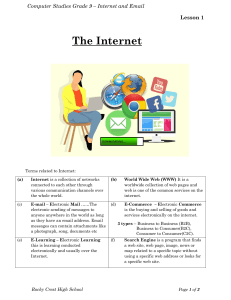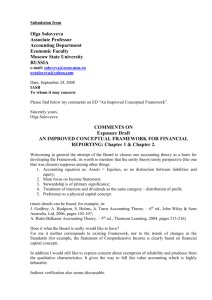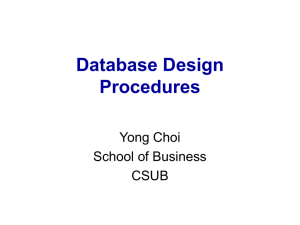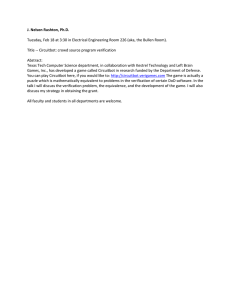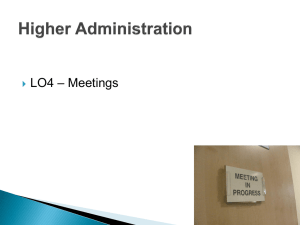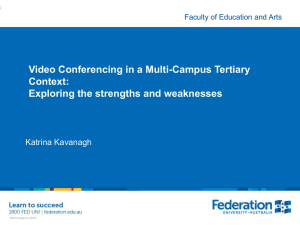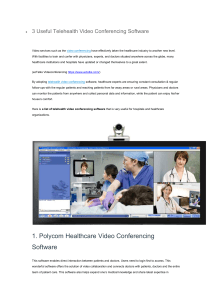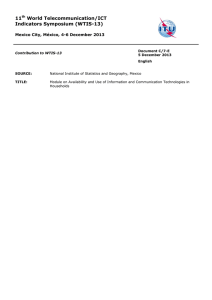Division of Educational Research National Council of Educational Research and Training
advertisement
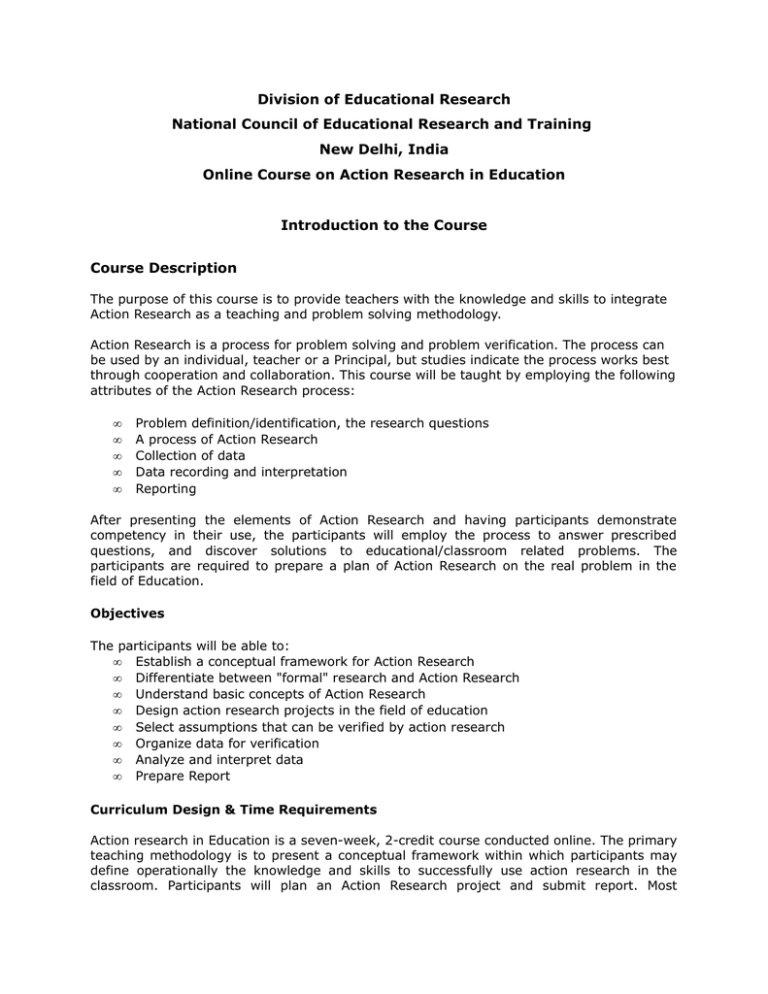
Division of Educational Research National Council of Educational Research and Training New Delhi, India Online Course on Action Research in Education Introduction to the Course Course Description The purpose of this course is to provide teachers with the knowledge and skills to integrate Action Research as a teaching and problem solving methodology. Action Research is a process for problem solving and problem verification. The process can be used by an individual, teacher or a Principal, but studies indicate the process works best through cooperation and collaboration. This course will be taught by employing the following attributes of the Action Research process: • • • • • Problem definition/identification, the research questions A process of Action Research Collection of data Data recording and interpretation Reporting After presenting the elements of Action Research and having participants demonstrate competency in their use, the participants will employ the process to answer prescribed questions, and discover solutions to educational/classroom related problems. The participants are required to prepare a plan of Action Research on the real problem in the field of Education. Objectives The participants will be able to: • Establish a conceptual framework for Action Research • Differentiate between "formal" research and Action Research • Understand basic concepts of Action Research • Design action research projects in the field of education • Select assumptions that can be verified by action research • Organize data for verification • Analyze and interpret data • Prepare Report Curriculum Design & Time Requirements Action research in Education is a seven-week, 2-credit course conducted online. The primary teaching methodology is to present a conceptual framework within which participants may define operationally the knowledge and skills to successfully use action research in the classroom. Participants will plan an Action Research project and submit report. Most modules take one week to complete (about 2 hours per week). Each week a new Module will be uploaded. There will be one hour synchronous communication as well. Hardware & Computer Skills Requirements Participants may use a PC with Windows 2000 or higher or Linux. Participants should have basic word processing skills and have internet access with an active e-mail account. Participants also are expected to have a basic knowledge of how to use a Web browser, such as Internet Explorer, Mozilla Firefox etc. They also must have Video conferencing skills by using Skype or Yahoo Messenger etc. They must posses Webcam and headphone for participating in the conferencing once in a week. During First week participants will be expected to explore how to use various facilities offered by Moodle (which is the Learning Management System for the course) Course Materials There are 5 modules specially developed for the course. In addition, online readings and Web site reviews (including journal articles and online books) will be assigned during the course to enhance learning. Participants are expected to read the part recommended for that module. Session Outline Session 1: Understanding Action Research Objective: To provide an orientation to action research and identify the stages of action research. Session 2: Beginning Action Research Objective: To improve problem selection for the action research process; to name problems specifically related to teaching and learning in the classroom. Session 3: data collection and Data analysis in Action Research Objective: To define the concept of research design and to identify various approaches to action research. Session 4: Report Writing Objective: To understand the process of documenting action research. Session 5: Action Research Project Objective: Plan an Action Research project Assessment Assignment Written Assignments (each module will have one assignment: total 6) Objective test (Multiple choice) at the end of the course Forum Discussions Final Project (Action Research Proposal) Total Points Grading Scale 40 100 – 91 A 15 90 – 76 B 15 75 – 60 C 30 < 60 D 100
